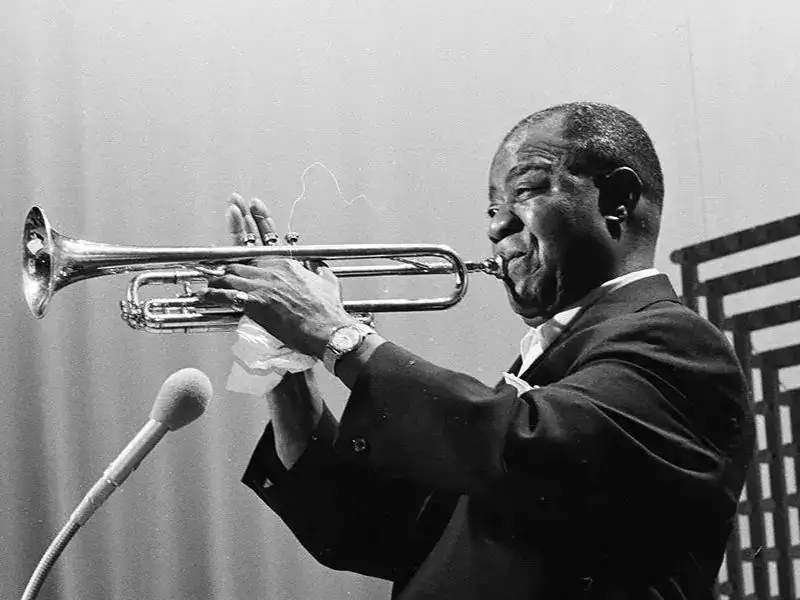You may be a tad disbelieving that we can explore the interesting life of Louis Armstrong. Let’s enter into the evolution of this legendary jazz artist. His tale kicks off in the modest streets of New Orleans and takes us through his monumental achievements in the music industry. We believe, as you might hold credence also, that Armstrong’s journey is a mixture of natural ability, determined effort, and significant influence on culture. Find out how his distinctive flair and captivating personality cemented his status as an adored icon in jazz music and further afield.
Early Life and Upbringing
Louis Armstrong grew up in New Orleans, Louisiana, in a tough part of town filled with violence and crime. He was born there on August 4, 1901. It wasn’t easy growing up because he lived in poverty and his dad left them. It was him and his mom. Armstrong had to face a significant quotient of challenges that tried to hold him back. Still, he managed to become a legendary jazz musician, which is pretty wild when you think about it. It may seem hard to believe–but we can take comfort in his story of overcoming those obstacles. And in the final analysis, one finds that his early life and all the rough experiences he went through actually shaped him into the legend he is remembered as today.
Despite these hardships, Armstrong found solace in music. He started playing the cornet at a young age and honed his skills by listening to jazz records and performing in local bands.
One clearly can envision how Armstrong became of significant consequence in jazz. He was extremely talented and didn’t give up, working really hard even when things got tough. Musicians noticed him pretty quickly–providing him chances to play and record music with the best jazz bands around. By sticking to it and loving music from the bottom of his heart, Armstrong didn’t only get through the rough patches — he changed the industry for jazz. One, if they so choose, may ponder how his dedication and talent turned him into a legend that left a lasting effect in relation to the music world.
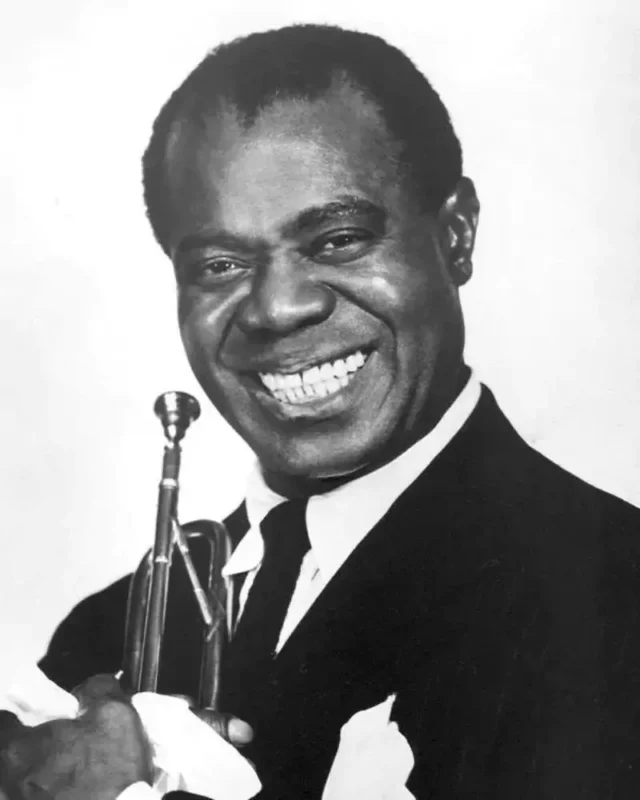
Image Source : Twitter
Musical Influences and Early Career
Inspired by Joe ‘King’ Oliver and Bix Beiderbecke’s groundbreaking ways with jazz, you started to tinker with your own music and ended up figuring out what makes your tunes different; the powerhouse cornet action from Oliver really reached you going on this path; this journey shaped essentially all of your music years; there can possibly be gratification in your knowing that these jazz legends steered your musical tenor from the get-go.
The upshot of this entire piece is, clearly, that these influences from your early days really set you up for a large career in music. Beiderbecke’s way of playing the trumpet – all emotional and catchy – didn’t only catch your ear — it somewhat changed how you play, filling your own music with a significant quotient of feeling and uniqueness. This content paved the way for you to hit it big, pushing you into the spotlight as a very important person in jazz. A discerning reader, such as yourself, will surely comprehend how big of a deal that is.
Breakthrough and Rise to Fame
After being heavily influenced by jazz greats like Joe ‘King’ Oliver and Bix Beiderbecke, their innovative styles and techniques propelled you towards your breakthrough and rise to fame. Your unique talent on the trumpet and your ability to improvise set you apart from other musicians of your time. In 1922, you joined Oliver’s Creole Jazz Band, which allowed you to showcase your skills and gain recognition.
With the Hot Five and Hot Seven bands in the late 1920s, you really made a name for yourself in jazz. Everyone remembers your songs “Potato Head Blues” and “West End Blues” because of how amazing they sounded — one can see — and there are no ifs, ands, or buts about it — you were extremely talented. What also helped you stand out was how you carried yourself on stage and how different your voice was. People couldn’t get enough of you, so you started traveling unfocused and even got to be in movies. And in the final analysis, one finds you’ve become a giant symbol for what jazz is focused on, and even now, people still look up to you and your music.
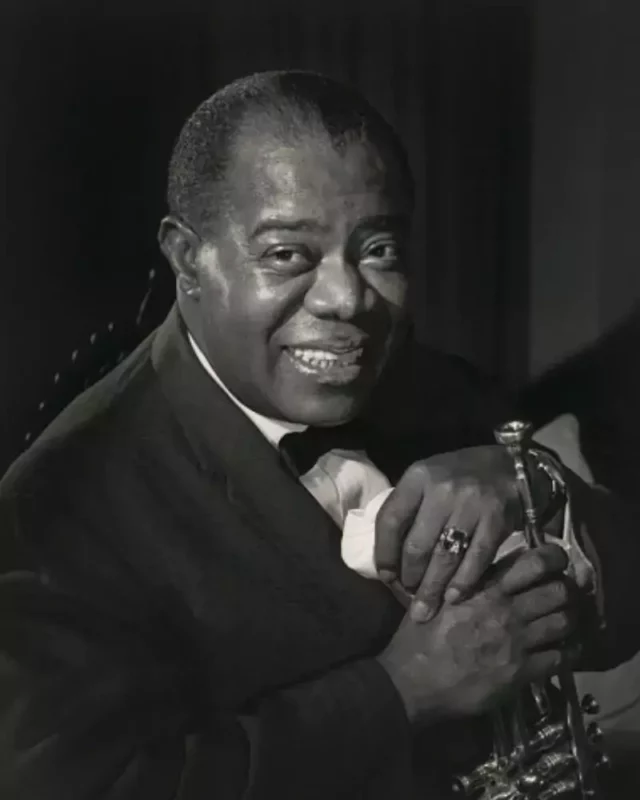
Image Source : Twitter
Check out body measurements of other celebrities
| kelen coleman measurements |
| lizzy caplan measurements |
| luther vandross measurements |
| michael buble measurements |
| melissa stark measurements |
Louis Armstrong Body Measurements And Personal Details
Name: Louis Armstrong
Nickname: Satchmo
Profession: Musician, Singer, Composer
Date of Birth: August 4, 1901
Age: 69 (Died on July 6, 1971)
Net Worth: $10 million
Height: 5′ 6″
Weight: 75 kg
Body Measurements: Unknown
Eye Color: Brown
Hair Color: Black
Birthplace/Hometown: New Orleans, Louisiana, United States
Nationality: American
Gender: Male
Ethnicity: African-American
Religion: Baptist
Sexuality: Straight
Sun Sign (Zodiac Birth Sign): Leo
Contributions to Jazz Music
Your amazing talent as a musician was shown off in your groundbreaking recordings, letting more people hear your one-of-a-kind style. How did these incredible recordings and the marvelous new ways you did things help jazz music grow and change? Your work has changed jazz music for the better in big ways. There is a profound and deep-seated certainty that you’ve done something special for jazz. The concrete and clear culmination of this is how truly awe-inspiring your contributions to jazz have been and how they keep making waves in the genre.
It may have once seemed unfathomable–but we know that your way of mixing blues and swing with your own spin changed jazz forever. You didn’t only play the trumpet; you played it in a nobody had before, and your scat singing? That was something else. These innovations didn’t only sit there; they got other musicians excited to try new things and push what jazz could be. We hope this piece may enlighten others about how you weren’t only part of jazz history. You basically helped write it, making waves that are still felt and heard in the jazz world today. Truly, you’re a legend.
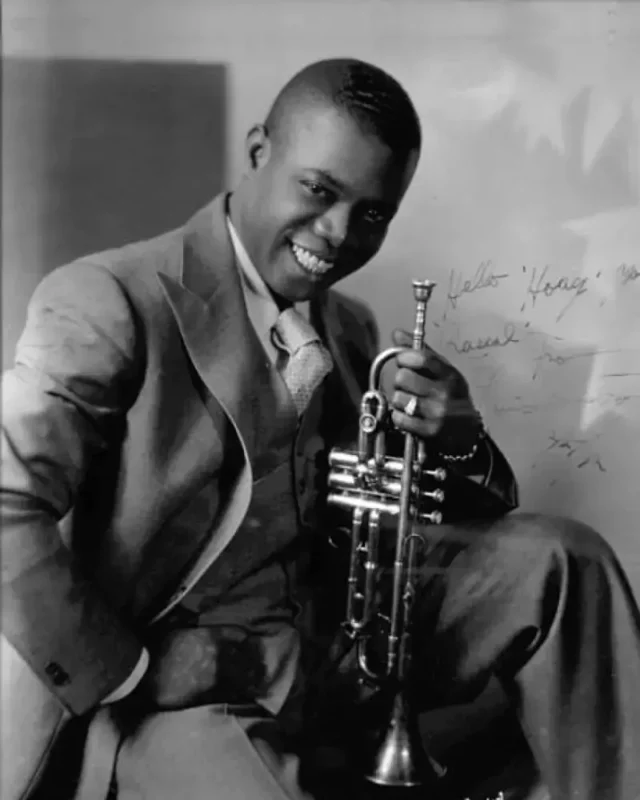
Image Source : Twitter
Impact on Racial Equality in the Music Industry
It may seem hard to believe but we can take comfort in how you really changed things for racial equality in the music scene. In the early 20th century, being a pioneering African American artist wasn’t easy at all. You had to deal with large obstacles–but your incredible skill helped you beat them.
Your music and singing as a jazz musician were extremely successful, and They actually helped smash through several racial walls in the music world, which is pretty amazing. Because of your fame and large impact, you didn’t only inspire many African American artists who followed your footsteps; you also managed to get people from different races to dig your content. This opened up so many doors for other black musicians to shine and linger. Next we engage in an intense examination of how your journey wasn’t only about tunes and beats–but about fighting for change –and making space for others. We hope this piece may enlighten others on how amazing and game-changing your contributions were, not only in music–but in battling against those racial divides.
By demonstrating the power of music to unite people regardless of their race, you paved the way for future generations to achieve success in an industry that had long been dominated by white artists. Your legacy as a pioneer of racial equality in music will forever be remembered and celebrated.
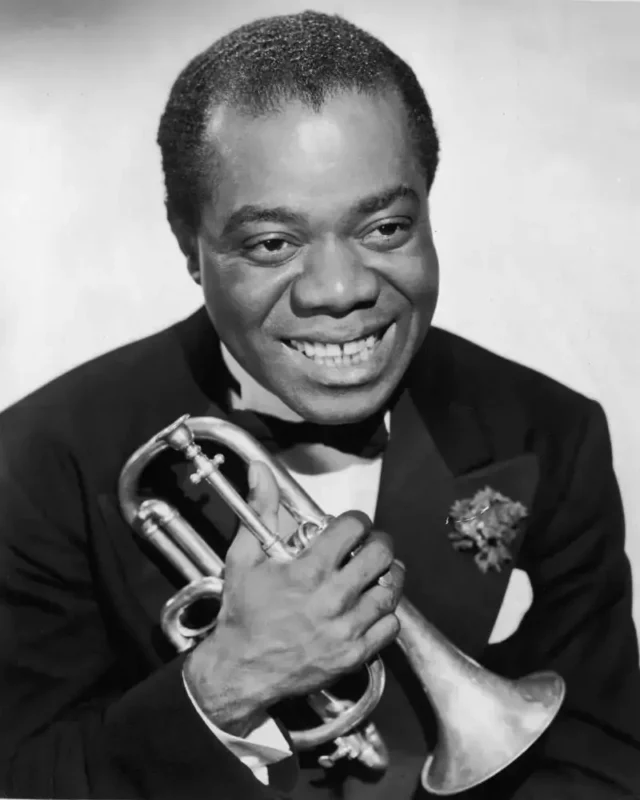
Image Source : Twitter
Legacy and Lasting Influence
As a discerning reader, such as yourself, will surely comprehend, Louis Armstrong really changed the industry when it came to jazz music. His way of playing the trumpet and the fresh things he did with jazz made him a pioneer that others in the music industry looked up to. Armstrong wasn’t only any musician — his knack for coming up with things on the spot and his scat singing essentially shaped jazz music’s path. You’ve probably heard his songs ‘What a Wonderful World’ and ‘Hello, Dolly!’ They’re classics and are still loved by many. We hope this piece may enlighten you on how big of a mark Louis Armstrong left on music. His legacy is massive, and he’s a leading figure for African American artists even a long time after he first hit the scene.
Additionally, Armstrong’s influence extended beyond music. As a charismatic performer and ambassador of jazz, he broke down racial barriers and paved the way for future generations of African American musicians. His impact on the music industry and his contribution to African American representation continue to resonate and inspire today.
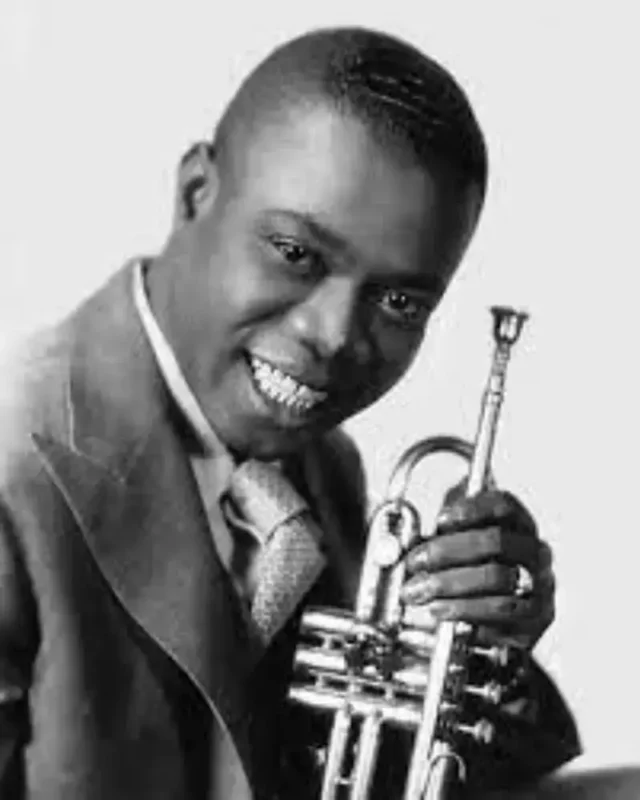
Image Source : Twitter
Conclusion
We’ve taken a walkthrough of Louis Armstrong’s life, and it’s wild how his story unfolds. Think about it—a person started with nothing in New Orleans. Imagine beginning there and blasting through to tower above the jazz music scene like he did. One clearly can envision Armstrong working his magic, breaking barriers in racial equality within the music world along his way. He wasn’t only talented — he had an aura that grabbed everyone’s attention, mixing pure skill with an effortlessly spectacular personality. And in the final analysis, one finds that Armstrong was indeed a stellar figure. His dedication alone set paths for many aspiring musicians, with his impact and legacy carrying on. His incredible journey shows he wasn’t only a musician — he shaped a whole new era of music, making it clear that he was a definitive legend, someone whose influence echoes through time.
